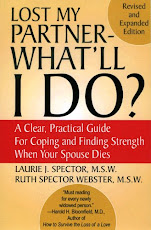This year, remind yourself that “love” isn’t just limited by the type of relationship you shared with your spouse/partner. By widening your scope a bit, you can embrace all the other relationships in your life where you give and receive affection. This can mean including relationships such as family members and good friends.
Use the Valentine’s holiday to show your appreciation of these other important personal relationships in some of the following ways:
- Schedule an outing or meal such as lunch or dinner to get together with a good friend or family member.
- Remember when you were a kid and gave valentines to friends and classmates? Revive this childhood custom with relatives and friends.
- Show yourself some appreciation. Think back and list on a valentine card at least two things you’ve achieved since your spouse’s death that you used to think weren’t possible. It’s important to give yourself credit for the progress you’ve made.
- Treat yourself to some pampering (a manicure or massage), or buy yourself a gift (hobby items or clothes or yes, a box of chocolates).

